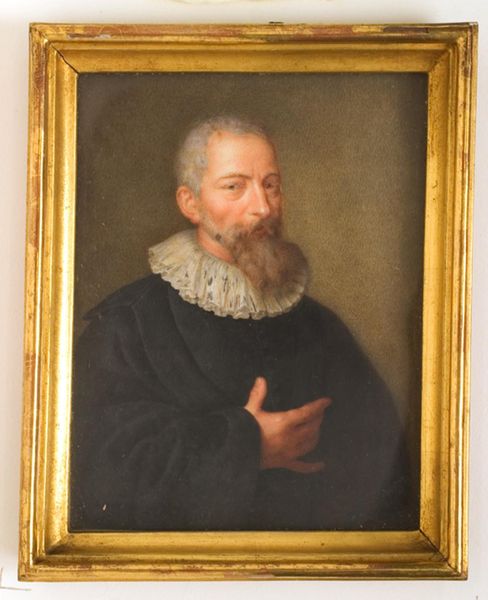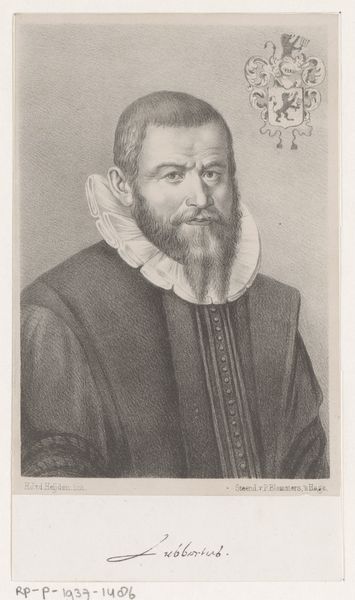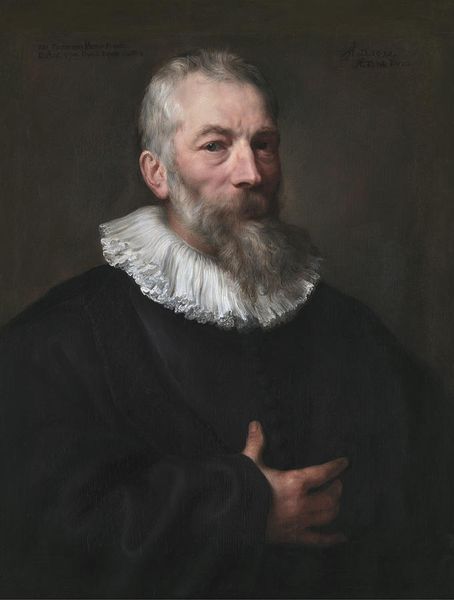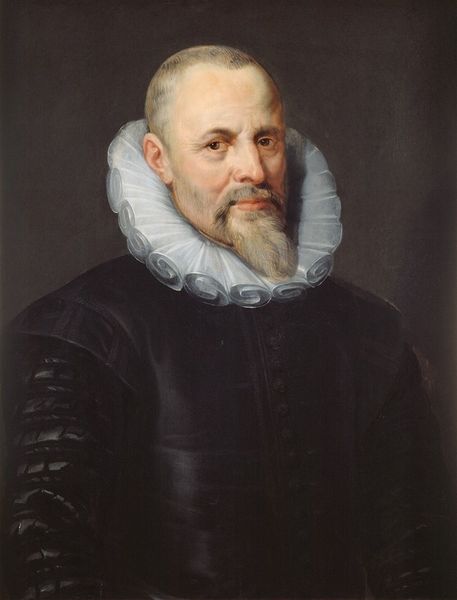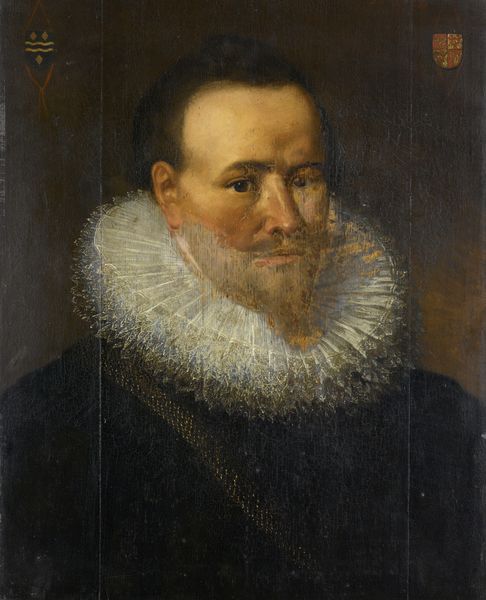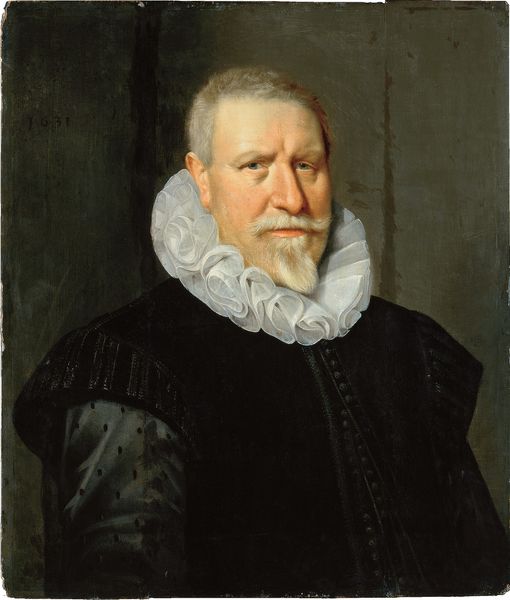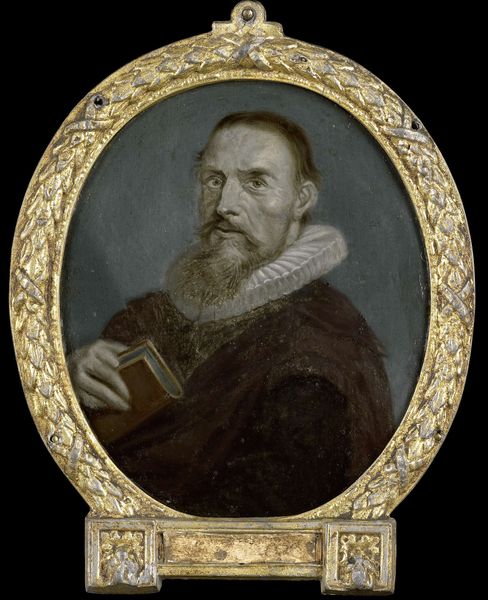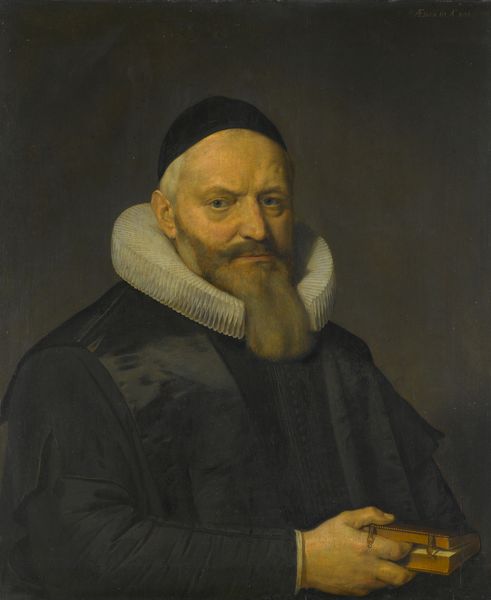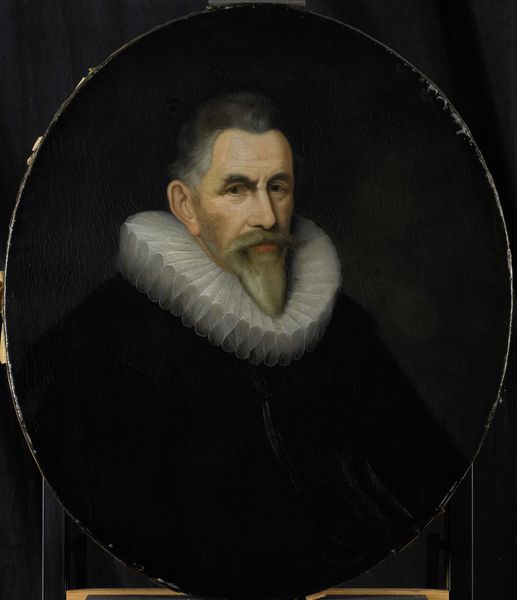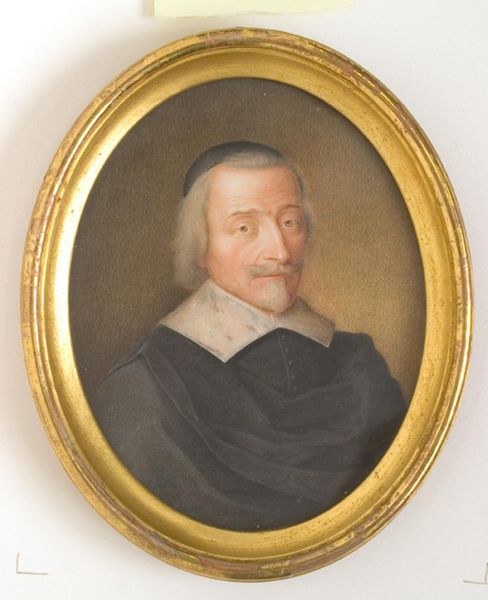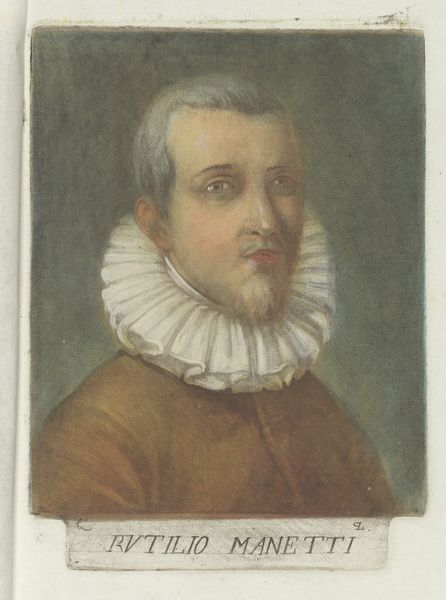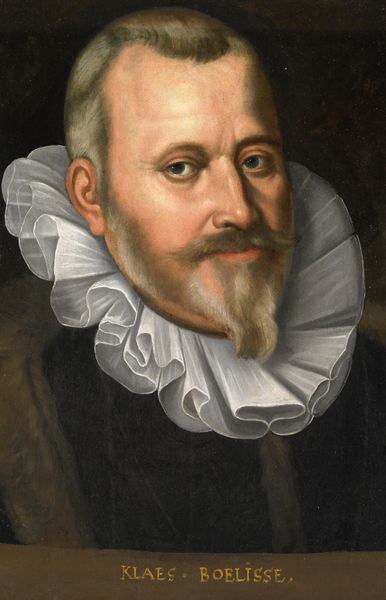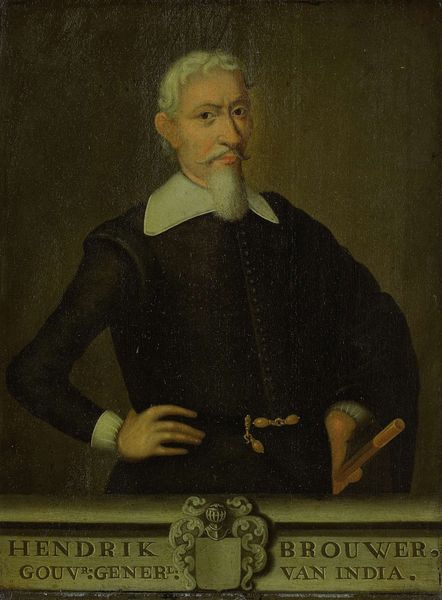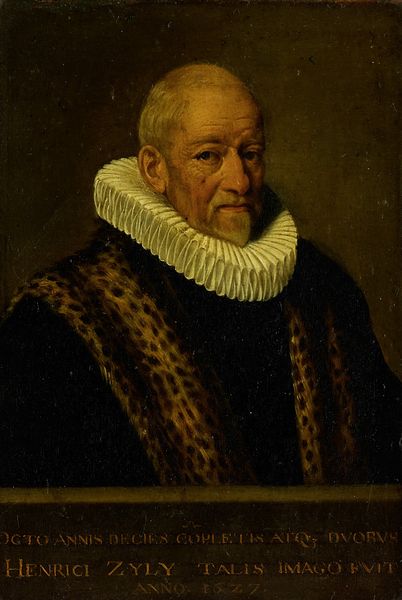
oil-paint
#
portrait
#
baroque
#
oil-paint
#
oil painting
#
portrait reference
#
portrait head and shoulder
#
framed image
#
animal portrait
#
animal drawing portrait
#
portrait drawing
#
facial portrait
#
academic-art
#
portrait art
#
fine art portrait
Dimensions: 11.7 cm (height) x 9.3 cm (width) (Netto)
Editor: So, this is "Herreportræt", or "Portrait of a Man," by David Gardelle, painted sometime between 1726 and 1748. It's an oil painting. I’m struck by how contained and formal the composition feels. What jumps out at you when you look at it? Curator: Immediately, it’s the formal qualities of the portrait. The restricted palette, predominantly blacks and muted browns, overlaid by the sharp white of the ruff, creates a compelling contrast. This visual tension underscores the geometry that reigns within the frame; how might we see his hand position functioning in that geometric framework? Editor: Hmm… It does almost seem staged. So, is the limited colour palette and pose all part of presenting a certain image of status? Curator: Precisely! The artist strategically employs restraint to communicate decorum. Reflect on the brushwork, also. Observe the detail rendered on the face compared to the relative looseness of the rendering of his clothes. Why give such relatively high resolution to the face? Editor: To emphasize his identity? So, it's like the colour and brushstrokes work together to convey information. Curator: Indeed. One might propose that even the texture of the paint itself – its materiality – serves as a signifier. How does the patina affect your reading? Editor: That’s interesting… I hadn’t really thought about that. It adds to the sense of history and maybe importance? It is clear that I have so much to learn about observing technique! Curator: That it may, by inviting the viewer into a richer interaction with form, surface and artifice. We all can keep improving on close looking; it opens so many doors.
Comments
No comments
Be the first to comment and join the conversation on the ultimate creative platform.
